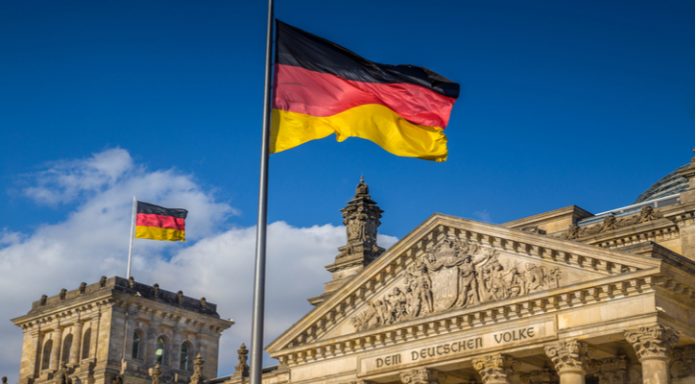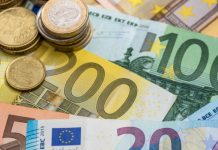- Pound (GBP) is drifting higher despite weaker sales data
- UK elections are in focus next week
- Euro (EUR) is falling after weaker German consumer confidence
- The French election first round is on 30th June
The Pound Euro (GBP/EUR) exchange rate is rising on Wednesday adding to gains yesterday. The pair rose 0.14% in the previous session, settling on Tuesday at €1.1836 and trading in a range between €1.1809 and €1.1865. At 15:00 UTC, GBP/EUR trades 0.02% at €1.1839.
The euro is falling on political uncertainty ahead of this weekend’s elections in France and after weaker-than-expected German consumer confidence data.
The market is fretting that a win by the far right in the French elections could result in increased fiscal spending, pushing debt levels in France to dangerous levels. However, the National Rally party is already watering down some of the policy measures, suggesting that some fears could be overblown.
GfK German consumer confidence unexpectedly deteriorated in May, raising concerns about Germany’s economic recovery.
GfK consumer confidence fell to -21.6, down from a downwardly revised -21. This was worse than the increase to -18.9 that economists had expected.
Weak consumer confidence comes after business climate data earlier in the week also showed deteriorating sentiment, raising concerns over Germany’s ability to recover from stagnation.
The largest economy, the eurozone, which is struggling, could encourage the ECB to cut interest rates again after reducing them earlier in June.
The pound is drifting higher despite disappointing retail sales data, and attention is turning to next week’s election, which the Labour Party is on track to win.
Given the UK’s economic position and the pledges Labour has made, the party has little room for large policy changes, and so it is unlikely to impact the pound. However, a more united Labour Party compared to the Conservative infighting may bring a level of stability and increased confidence that could support sterling.
Retail sales data from the Confederation of British Industries, which compares sales volumes to the previous year, fell by -24 in June after rising by +8 in May. The data comes as wages are rising faster than inflation and as consumer confidence returns. However, poor weather hit sales.





